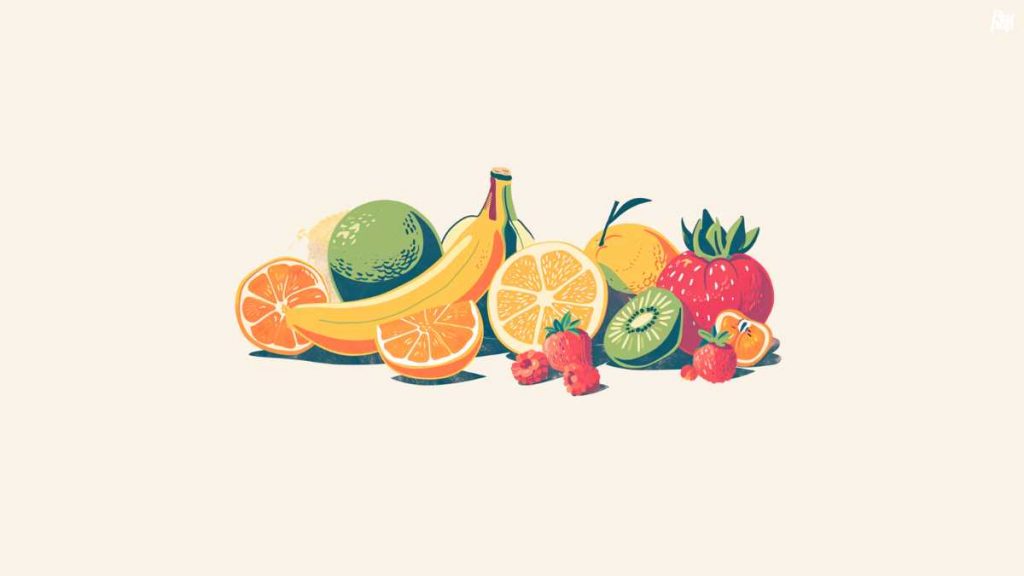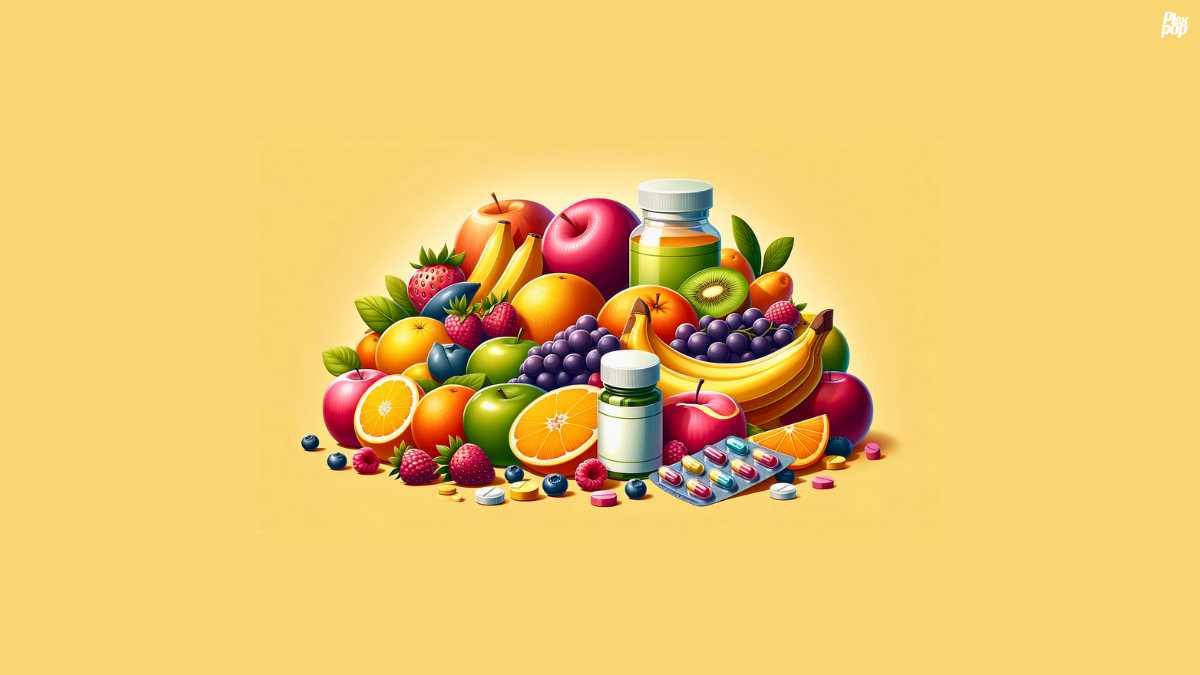The choice between sourcing vitamins from food or supplements has become a crucial health consideration. As lifestyles accelerate, the allure of supplements as a quick-fix for nutritional needs is understandable, yet the question remains — Are they truly a match for the nutrients we derive from food?
Benefits of Whole Foods
Whole foods bring a complex, synergistic array of nutrients, offering an intricate balance of vitamins, minerals, fiber, and antioxidants. This natural combination enhances nutrient absorption and maximizes health benefits. For instance, the antioxidants known as carotenoids, found abundantly in fruits and vegetables, require dietary fats for optimal absorption, a natural interplay absent in supplements.
Research, including a study from Tufts University, has demonstrated that food-based vitamins are linked to lower risks of death and chronic diseases. In contrast, these benefits do not extend to the same nutrients when consumed in supplement form. This highlights the unique role of food matrices in determining the effectiveness of nutrients.
- Nutrient Synergy: Whole foods contain a diverse range of nutrients that work together to enhance each other’s absorption and effectiveness.
- Rich in Antioxidants and Phytochemicals: Fruits and vegetables provide antioxidants and phytochemicals most effectively when consumed in their natural form.
- Lower Disease Risk: Consuming nutrients from whole foods is linked to reduced risks of mortality and chronic diseases, a benefit not seen with supplements.
- Natural Nutrient Regulation: The body more efficiently regulates and uses nutrients obtained from whole foods, reducing the risk of overconsumption.
- Abundant Dietary Fiber: Whole foods are a prime source of dietary fiber, essential for digestive health and not typically found in supplements.
- Comprehensive Nutritional Package: Whole foods deliver a complete nutritional package, including water, fiber, and various beneficial compounds, offering holistic health benefits.
Understanding the Limitations of Supplements
While supplements are often seen as a convenient way to fill nutritional gaps, they come with certain limitations. Understanding these limitations is crucial in ensuring they are used appropriately and effectively.
- Incomplete Nutritional Profile: Supplements cannot fully replicate the diverse array of nutrients and beneficial compounds found in whole foods.
- Absorption and Bioavailability Issues: Nutrients from supplements may not be absorbed or utilized by the body as effectively as those from whole foods.
- Regulation and Quality Concerns: Supplements are not regulated as stringently as pharmaceuticals, raising questions about their quality and the accuracy of their labeling.
- Potential for Nutrient Imbalance and Toxicity: Excessive intake of supplements, especially fat-soluble vitamins, can lead to nutrient imbalances and potential toxicity.
- Misconceptions and Misuse: Relying on supplements to compensate for poor dietary habits is a misconception; they are meant to complement, not replace, a balanced diet

Targeted Supplement Use
While the general consensus tilts heavily towards whole foods as the primary source of nutrition, there are specific scenarios where supplements play a crucial role in addressing nutritional deficiencies. Understanding these situations is vital for making informed decisions about supplement intake.
Essential for Specific Life Stages and Conditions:
- Pregnant Women: One of the most critical groups that benefit from supplements are pregnant women. Prenatal vitamins, especially folic acid, are indispensable during pregnancy. Folic acid, a B vitamin, is proven to significantly reduce the risk of birth defects in the developing baby’s brain and spinal cord. Given the crucial role of these nutrients in fetal development, supplementation under medical guidance becomes essential.
- Older Adults: As we age, our body’s efficiency in extracting nutrients from food diminishes. This is particularly true for vitamin B12, necessary for maintaining healthy blood cells and nerve function. Older adults often face a natural decline in the absorption of this vitamin from food. Supplementing with vitamin B12 can help mitigate these deficiencies, ensuring that the elderly maintain optimal health.
- People with Restricted Diets: Individuals who follow strict dietary patterns, such as vegans and vegetarians, often miss out on certain nutrients that are predominantly found in animal products. Vitamin B12, for instance, is naturally present in meat, dairy, and eggs, but absent in plant-based foods. Therefore, for strict vegans and vegetarians, supplementing with vitamin B12 is recommended to avoid deficiencies.
In addition to life stage or dietary preferences, certain health conditions may necessitate supplementation. For instance, people with specific vitamin deficiencies, either due to genetic factors, lifestyle choices, or other health conditions, might need to supplement that particular nutrient to maintain their health.
When turning to supplements, it’s important to choose high-quality products. Look for supplements that have been third-party tested to ensure they contain the stated nutrients and meet safety standards. These certifications or approvals indicate a higher level of trust and reliability in the product.
Balanced Diet for Optimal Health
The journey to optimal health is more about the foods on your plate than the supplements in your cabinet. A balanced diet, rich in a variety of nutrients, stands as the cornerstone of good health. A balanced diet encompasses a wide range of nutrients obtained from a variety of food sources. It’s not just about eating fruits and vegetables; it includes lean proteins, whole grains, and healthy fats. This diversity ensures that you get a complete range of vitamins, minerals, and other essential nutrients.
- Fruits and Vegetables: They are high in vitamins, minerals, fiber, and antioxidants. Aim to include a variety of colors in your diet — each color represents different nutrients. For instance, leafy greens are rich in vitamins A, C, and K, while orange fruits like carrots and sweet potatoes are high in vitamin A and beta-carotene.
- Proteins: Incorporate lean proteins such as poultry, fish, beans, and legumes. Proteins are essential for building and repairing tissues and play a key role in immune function.
- Whole Grains: Foods like whole wheat, brown rice, quinoa, and oats are rich in fiber, B vitamins, and minerals. They help in maintaining healthy digestion and a stable energy level throughout the day.
- Healthy Fats: Sources like avocados, nuts, seeds, and olive oil provide essential fatty acids. These fats are crucial for brain health, inflammation control, and heart health.
Eating a wide range of foods ensures you get different nutrients necessary for your body’s functioning. Alissa Rumsey, a renowned dietitian, suggests looking at your diet over the course of a week to ensure diversity. This approach allows for flexibility and reduces the stress of having a perfect diet in every meal.

Practical Tips for a Balanced Diet:
- Meal Planning: Plan your meals for the week. This helps in incorporating a variety of foods and prevents reliance on last-minute unhealthy options.
- Cooking at Home: Preparing meals at home gives you control over ingredients and helps you make healthier choices.
- Portion Control: Be mindful of portion sizes to avoid overeating, even of healthy foods.
- Reading Labels: When shopping for packaged foods, read labels to choose options with lower amounts of added sugars, sodium, and unhealthy fats.
- Hydration: Don’t forget about water. Staying hydrated is a key part of a healthy diet.
Wrapping up
The verdict is clear: whole foods emerge as the superior source of nutrition. Their complexity and the balanced nature of a healthy diet cannot be matched by supplements. While supplements have a role in specific nutritional deficits, they are not a blanket solution for poor dietary habits. The age-old wisdom of ‘you are what you eat’ rings truer than ever in our modern quest for health and well-being.






Leave a Comment